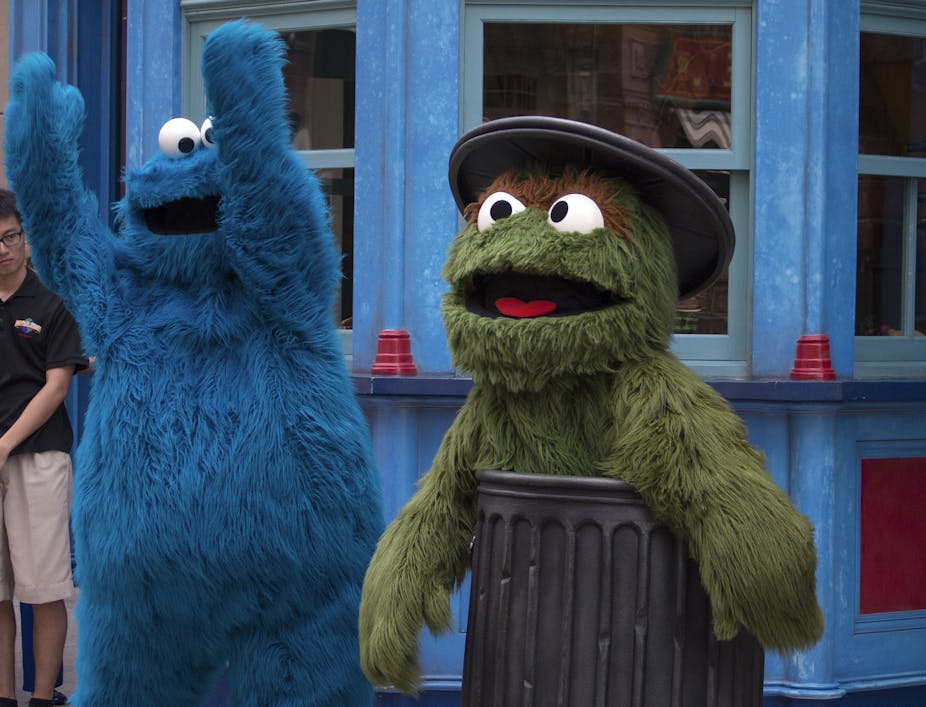“You are being spied upon” is a warning that seems to greet us from the pages of our newspapers almost every day at the moment. The government is stockpiling your data, your Internet service provider is tracking your every move, your supermarket is tracking your purchasing habits - and now even your local rubbish bin is getting in on the act.
It’s been revealed that advertising company Renew has been trialling a system that uses WiFi scanners placed around the City of London in recycling bins, tracking footfall by digitally identifying your mobile phone as you wander by. The bins log the mac address that your phone broadcasts when its WiFi is active and can then recognise you when you walk past the next time. And of course, those bins also display digital advertisements, meaning that this tracking information could ultimately be used to tailor targeted advertising, personalised especially for you. If the bin knows what time you go to lunch and where you buy it, it might push an ad for a nearby cafe (or more likely a big, branded sandwich retailer) at you as you walk past.
The City of London has come down hard, and Renew has been told to stop the trial. But the company doesn’t seem to see what all the fuss is about. It has even issued a statement saying it wants to engage with the privacy debate, but that certainly hasn’t detracted from the attention given to chief executive Kaveh Memari’s plan to “cookie the street” - a proposal that refers to tracking pedestrians by digitally tagging them in the same way advertisers attempt to follow you about the world wide web.
Now, Google has displayed a similar incredulity when accused of failing to protect its customers’ privacy. The company has said that it should come as no surprise to Gmail users (and those that e-mail them) that the messages they receive are not confidential. And really, should it? Our information is processed all the time without us paying much attention. There are EU directives telling websites they now need to inform us when they are harvesting our data, although how many people take the time to think about what it means to agree to a site’s privacy policy before using it? While the tide of public opinion quickly turns when a private company takes our information in a bid to sell us something, our everyday actions indicate we value our privacy very little, despite our protestations.
However, Google at least provides a free web-email service to its users, and that service is a pretty good one. In return for using it, we agree to allow the company to interact with us via targeted advertising. To do this Google parses our emails - or rather an algorithm does - in exactly the same way our spam filter “reads” our emails. If we don’t like that deal, it’s easy - we just don’t interact with the service.
The key point here is that in using Gmail we, the users, get something out of the deal and are able to make an informed decision based on that return. Using the highly emotive term “invasion of privacy” to describe this value trade-off is falsely naive at best. In sharp contrast, all we expect of a public bin is to receive our empty Coke cans and crisp packets, so the backlash that ensues when it starts to act above its station comes as far less of a surprise.
Still, are the bins really “spying” on us, as the media would have us believe? If you’re out in public, where anyone can see you and even take photos of you that you have no copyright over, according to our definition is this spying at all? To be sure of avoiding having your photo taken, you’d have to walk around in a balaclava all day. All you have to do to evade the bins is turn your phone’s WiFi off.
The use of bins to track our movements is ethically dubious, but this isn’t about our privacy: it’s about our right not to be stalked, and as such speaks more to stalking law than privacy law. If someone was following you about continually in public, as London bins are showing wont to do, then you’d report them to the police and they would be told to stop. If I accepted a free lunch from them, I might have less of a case to make when I got to the police station.
That’s the difference between Google and a bin. One can help you to buy your lunch every day, the other should just take the wrapping when you’re done.

